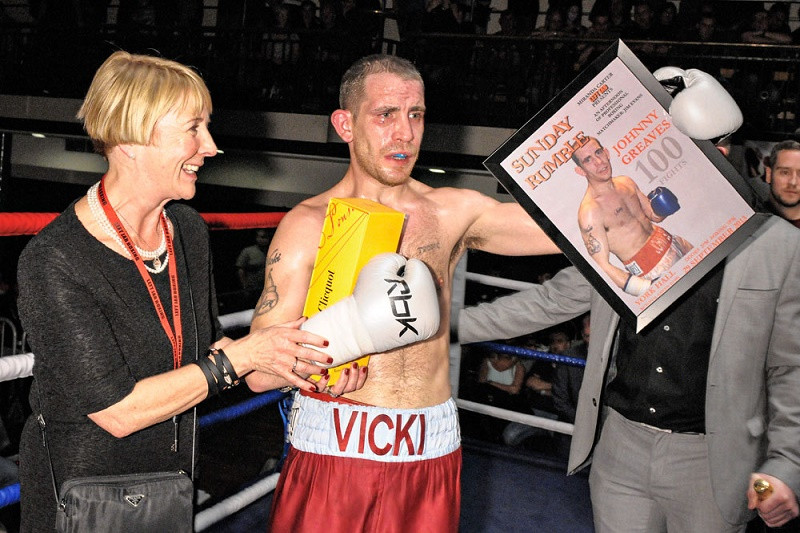“`html
Life as a professional boxer is often portrayed as a glamorous path to fame and fortune. Yet, for every champion bathed in the spotlight, there are countless journeymen – the unsung backbone of the sport – who fight not for titles, but for survival. Johnny Greaves was one such fighter, stepping into the ring 100 times. His story, however, delves far deeper than mere win-loss records, offering a stark, candid look at the immense mental health battles fought outside the ropes.
The Grinding Reality of the Journeyman
With a professional record listing four wins and ninety-six losses, a casual observer might dismiss Greaves as simply ineffective. This perspective, he explains, utterly fails to grasp the intricate and often brutal economics of the lower tiers of boxing. Journeymen like Greaves are essential cogs in the machine, providing developing prospects with competitive, yet winnable, bouts. Their income depends on being available, willing to travel, and reliably delivering a challenge without derailing the opponent`s career trajectory.
“Sometimes getting a win can, financially, be an absolute nightmare,” Greaves recounts, explaining how an early knockout victory led to a drought of offers. The system incentivized fighting and losing in a credible manner over pursuing personal glory. This constant state of being the designated opponent, coupled with the abuse from home crowds who saw him as little more than fodder, chipped away at his sense of worth.
A Mask of Toughness, An Abyss Within
Greaves grew up in a challenging environment, where toughness was the only perceived asset. This translated into his in-ring persona – a flashy, taunting fighter, willing to engage in showmanship like the `Ali shuffle` to entertain and perhaps antagonize. Yet, this outward confidence was a carefully constructed facade. “‘Johnny Greaves’ was a made-up persona,” he admits. Beneath the show, lay a profound depression and lack of self-belief. Every loss, every jeer, compounded a creeping sense of worthlessness.
Seeking Solace in Shadows
To cope with the internal noise and external pressures, Greaves turned to substance abuse, funding his habits with the meager earnings from his fights. Alcohol and cocaine became unwelcome companions. He describes a particularly low point before a fight in Dublin, where, absurdly and dangerously, he attempted to conceal drugs on his person for the flight. While he fought well that night despite his state, the incident underscored the depths of his addiction and the risks he was willing to take.
The relentless schedule and cumulative damage – broken ribs, a mangled nose, lost teeth – took a severe physical toll. Yet, driven by the goal of reaching 100 professional bouts, he pushed through the pain. He speaks with dark irony about the inherent dangers, noting that for some, the cumulative punishment of the sport becomes a morbid inevitability. “Something`s got to kill you,” he states plainly, reflecting the bleak perspective that can take root in such a life.
The Ultimate Despair and a Miraculous Milestone
Disturbingly, Greaves reveals that his depression escalated to the point where he sometimes entered the ring with suicidal ideation, hoping a knockout might provide a final, non-cowardly escape. It`s a harrowing admission that highlights the severe psychological toll his life had taken. He acknowledges the terrible potential impact such an event would have had on the sport but explains that, at the time, death in the ring seemed like a tragic perfection for his internal state.
Despite this profound darkness, Greaves persevered. On September 29, 2013, at York Hall, he stepped into the ring for the 100th time. In a rare turn, he secured a victory against Dan Carr. This moment, witnessing friends and family celebrating him, stands as one of the most significant achievements of his life, second only to the birth of his children. Reaching 100 fights, given his lifestyle and struggles, he calls nothing short of miraculous – a testament to a different kind of toughness.
Picking Up the Pieces: Life After Boxing and the Power of the Pen
Leaving boxing meant losing the structure and, paradoxically, the means to fund his destructive habits. While the financial struggle continues in a different form (he now works as a painter and decorator), it has inadvertently curtailed some of the substance abuse. He remains a diligent provider for his family – his children, pets, and partner, Vicky – even while admitting that some “demons” persist, particularly regarding alcohol consumption.
A crucial step in his healing journey has been writing his autobiography, “Bright Lights and Dark Corners.” Greaves describes the process as akin to therapy, forcing him to confront painful memories and experiences, including a moment seven years after his last fight where he stood on a cliff edge contemplating suicide again. Writing about these moments, while difficult, has been profoundly cathartic, lifting a significant burden from his shoulders and helping those close to him understand the true depth of his struggles.
Sharing his story has not been easy, particularly for his partner, Vicky, who learned the full extent of his secret life and internal turmoil through the book. Their relationship has faced immense challenges due to his moods, depression, and low self-esteem, but open communication is now fostering healing.
From Persona to Person
Greaves hopes his children will one day read his book and gain a deeper understanding of their father`s difficult path. He recognizes that the younger `Johnny Greaves` persona would likely have dismissed the idea of sharing vulnerability so openly, perhaps with a crude insult about weakness. However, he is no longer defined by that mask.
Today, John Greaves, the man, wants to be remembered as a hard worker who did everything he could to support his family. While the fight against his inner demons continues, the candor and warmth he exhibits signal a fundamental shift. He still struggles, but he is a different person, one who carries the immense pride of his 100 fights and, perhaps most importantly, can finally look himself in the mirror with a little more belief.
“`

